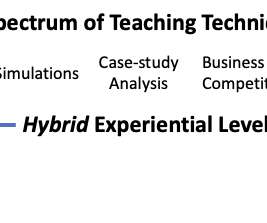The Government Starts an Incubator: The National Science Foundation Innovation Corps
Steve Blank
DECEMBER 20, 2011
They launched an incubator for the top scientists and engineers in the U.S. While they’ll never admit it, the National Science Foundation was starting an incubator – the Innovation Corps – to take the most promising research projects in American university laboratories and turn them into startups. The I-Corps Incubator Program.





































Let's personalize your content